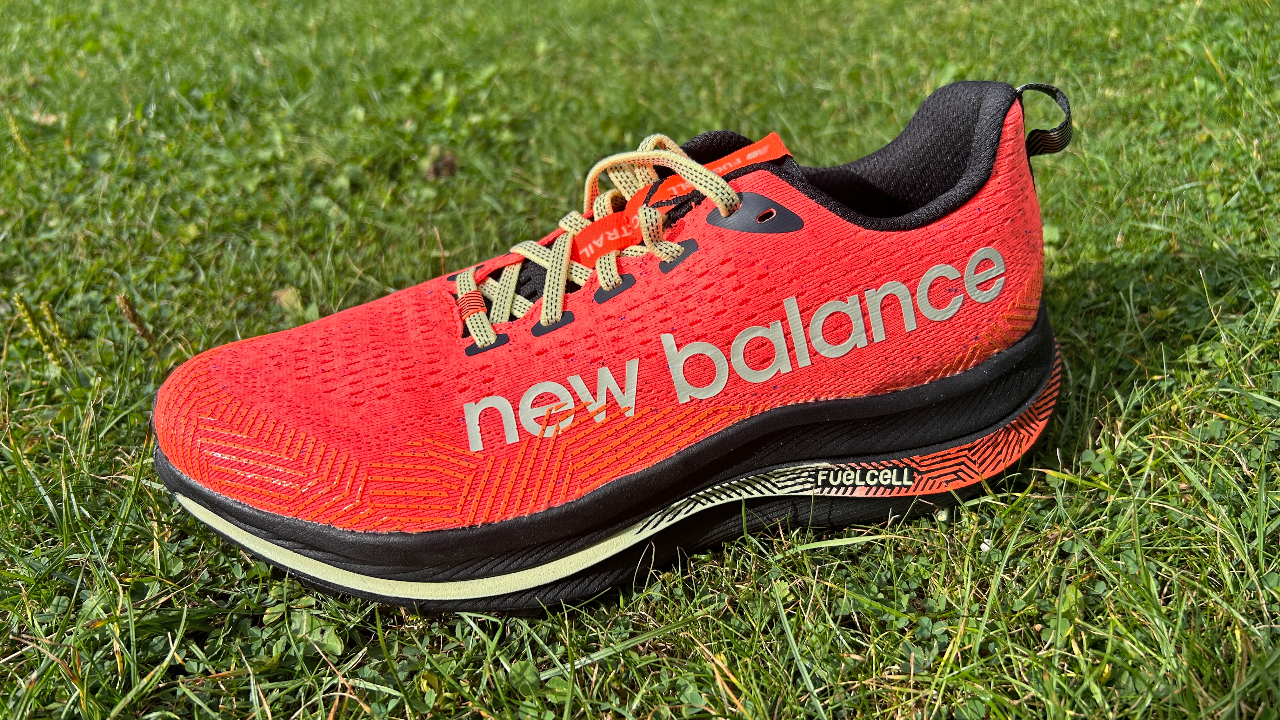
The New Balance FuelCell SuperComp Trail is the trail-racing equivalent of road shoes like the New Balance SC Elite v3, using the brand’s bouncy FuelCell foam and a carbon plate in the midsole. It’s one of the best trail-running shoes for those seeking a racer for a range of events, but I’m not sure it’s comfortable enough for ultra-marathons, where the Nike Ultrafly and Adidas Terrex Agravic Speed Ultra stand out as better options.
New Balance FuelCell SuperComp Trail: Price And Availability
The New Balance FuelCell SuperComp Trail launched in summer 2023 and costs $200 in the US and £200 in the UK. That price puts it in the middle of the pack for trail super-shoes: cheaper than the Nike Ultrafly and Adidas Terrex Agravic Speed Ultra, more expensive than the Asics Fujispeed 2, and around the same as the Hoka Tecton X2.
How I Tested This Shoe
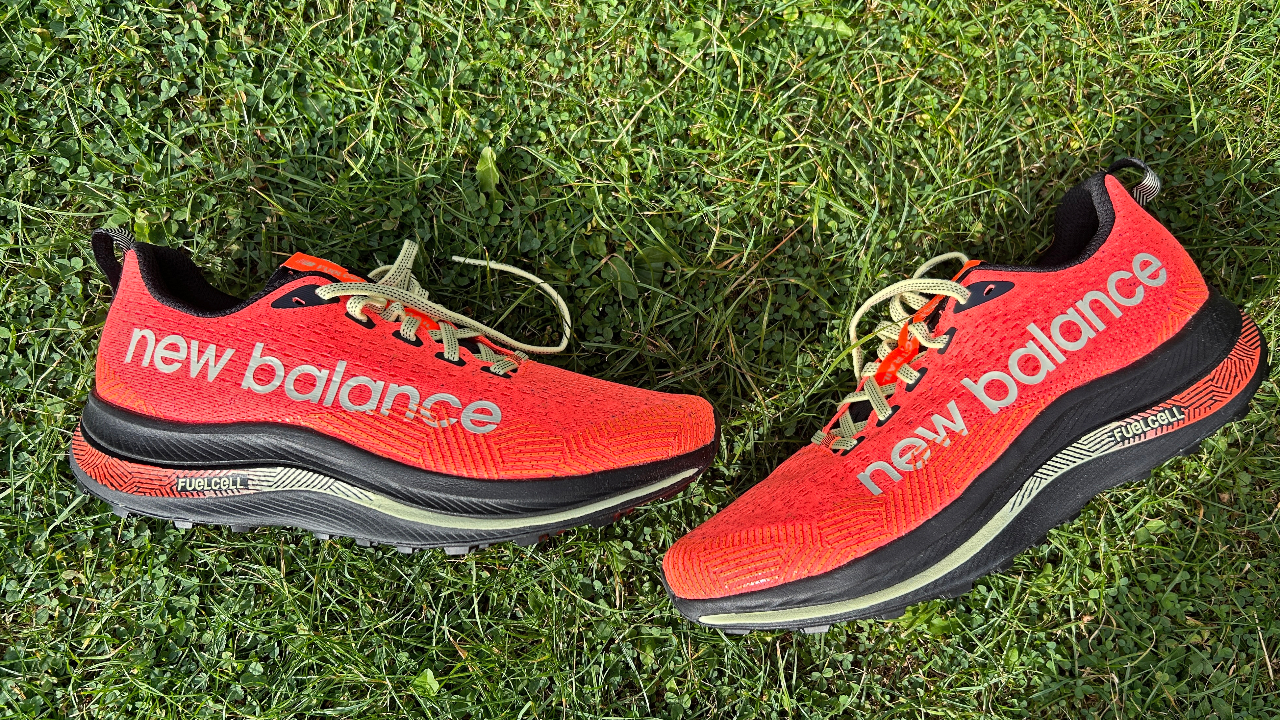
In my testing, I’ve run 30 miles in the New Balance SC Trail. This is short of what I’d have liked because the sample shoe was too tight in the toe box to enjoy using it for fast, long runs. I have done a 90-minute run in the shoe at an easy pace, plus several faster, shorter runs, mostly on forest tracks and grass, as well as on the road. I’ve tested many of the best carbon plate running shoes for the trails, and New Balance’s FuelCell road shoes including the SC Elite v3 and SC Trainer v2.
Design And Fit
The SC Trail takes several design cues from New Balance’s road shoes, with a FuelCell midsole, a carbon plate and the brand’s Energy Arc rocker geometry. However, these have all been tweaked to make them more suitable for off-road running.
The plate is now forked in the forefoot, rather than a full plate, which makes it more flexible and stable on uneven ground. The midsole is dual-density, with a firmer layer of FuelCell on the bottom, again to increase stability while you still get the soft, bouncy feeling from the top layer.
The rocker is less pronounced than on other shoes like the SC Elite v3, and the SC Trail has a 10mm drop rather than the 4mm of the Elite. This creates more of a snap through to your toes than a rolling ride. New Balance doesn’t give the stack height, though I’ve seen it listed online at 36.5mm at the heel and 26.5mm at the forefoot. It weighs 9.4oz/266g in my size UK 9, which is light for a trail shoe with such a high stack.
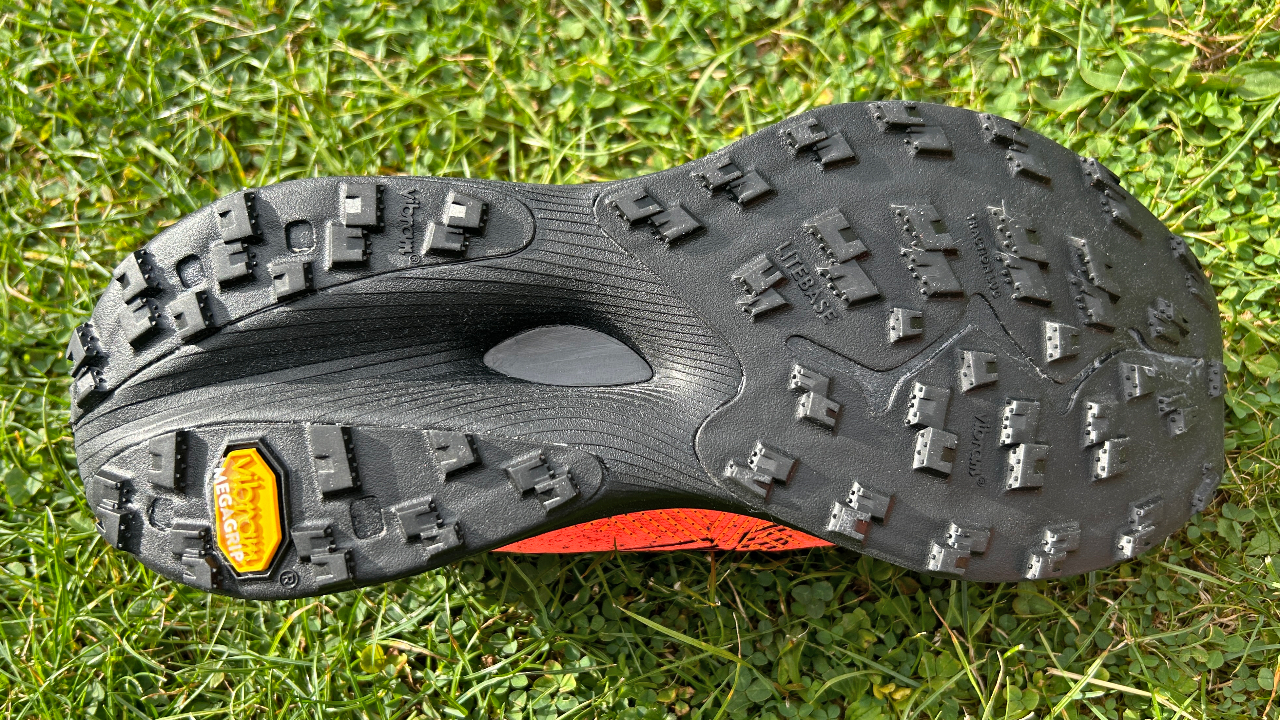
The outsole is also different from New Balance’s road shoes. The SC Trail has a Vibram rubber outsole with 4mm lugs; these have a broad shape which means they work well on harder, smoother trails as well as paved surfaces, but there is bite for soft ground too. A cut-out on the bottom of the shoe shows the carbon plate in the midsole, and reduces the weight. This seems likely to capture small stones, so if you run on gravel tracks a lot you may face picking pebbles out of the shoe regularly.
The mesh upper on the shoe has a dense weave and overlays around the base, near the midsole, to provide extra protection on the trails, with a more breathable section over the top of the forefoot.
I found that the SC Trail ran small, and it also has a narrow toe box. On easy runs on mostly flat ground I could get away with using the shoe, but running at speed or downhills my toes hit the front of the upper, which was uncomfortable. I would go at least half a size up. This is something I’ve had before with other speed-focused shoes from New Balance, which have been tighter than cushioned shoes in its range.
Running Performance
Although it is a speed-focused shoe, the SC Trail is versatile thanks to its high stack of foam. I found it enjoyable to use for slow and easy runs, and cruising around my local forest for 90 minutes felt great in the shoe.
The ride changes when you run faster, with more snap through onto the forefoot and extra pop off the plate and FuelCell midsole foam. The high drop is noticeable and different from other trail super-shoes I’ve tested. It felt like a lower-stack shoe, and was nimble and stable when rounding corners or running along twisting single-track paths.
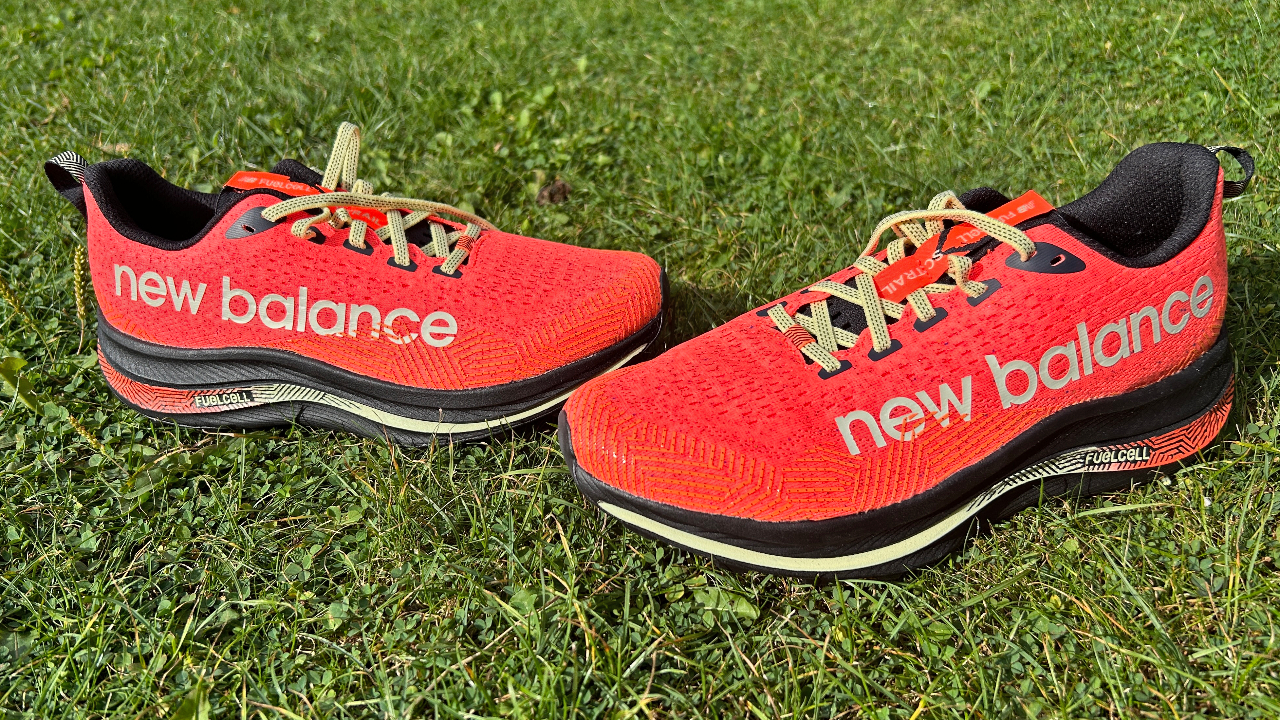
In testing, I mostly ran on soft ground that had become muddy, and the grip was firm. Some of that fast snap of the ride is lost when it gets muddy, and on that kind of terrain I’ve never been entirely sure plated trail shoes have major benefits. The outsole couldn’t handle deep mud for long without slipping, though it worked on a range of terrains and was comfortable for stints on paved surfaces too.
When running on smoother, harder ground you get more back from the midsole foam and plate, and because it is fairly light, it’s easy to maintain a high cadence in the shoe when doing something like hill sprints.
The only comfort concern I had was about longer fast runs, or runs on rocky ground. Because the amount of cushioning under the forefoot isn’t huge the high drop meant that transitioning from heel to toe was forceful, resulting in forefoot discomfort. I wouldn’t be keen to run ultra-marathon distances in the SC Trail.
Is The New Balance FuelCell SuperComp Trail Worth It?
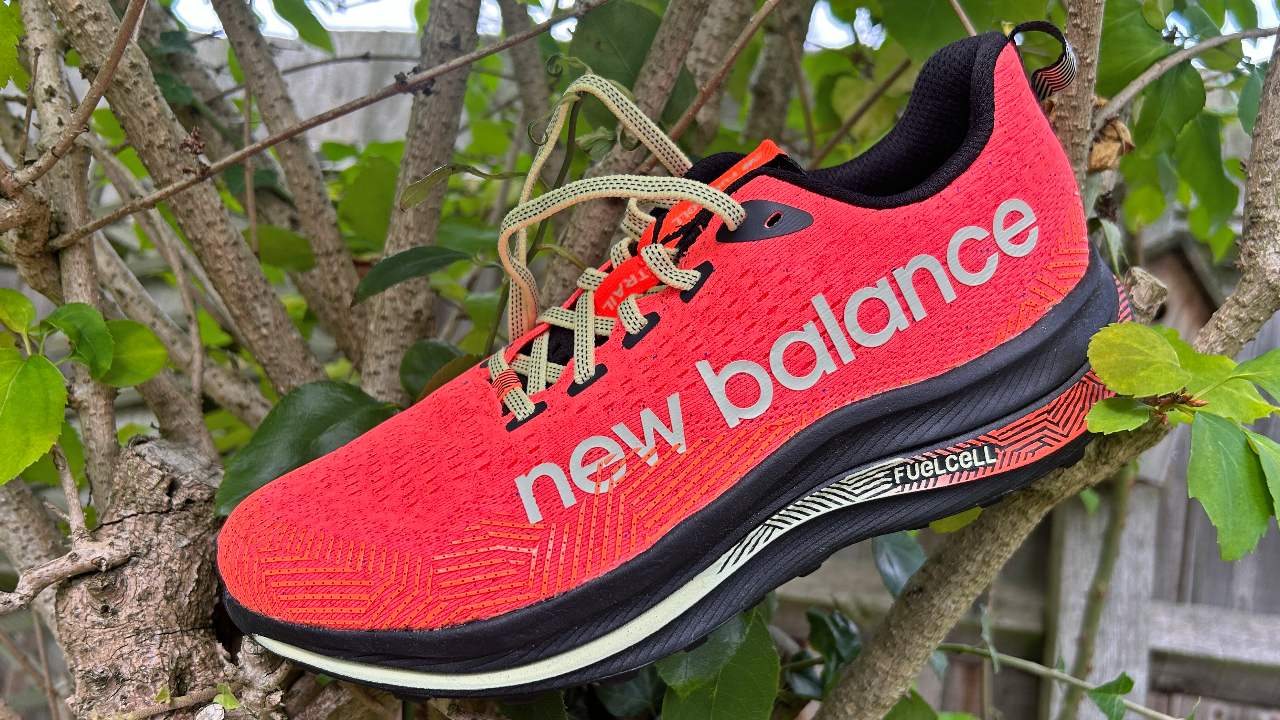
The New Balance SC Trail is a successful first attempt at a trail super-shoe. It has the key ingredients of carbon shoes for the road and these have been adjusted smartly for the trails. Aside from the excessively snug fit, the only worry I have is that it may not be that comfortable over the long haul, compared with more cushioned or rockered shoes like the Nike Ultrafly and Adidas Terrex Agravic Speed Ultra, which I have used for ultra-distance runs without any comfort complaints.
Those two shoes, and the Hoka Tecton X2, are great trail super-shoes that skew more towards long distances than the New Balance SC Trail, which feels nimble and quick enough for short trail events.
A clear alternative is the Asics Fujispeed 2, which I found similarly fast and agile for shorter runs to the SC Trail. The Fujispeed 2 is cheaper and, in general, it’s the carbon plate trail shoe I’d recommend at the moment because of its low price and high level of performance, though it’s not the most comfortable for long distances. The SC Trail is an excellent shoe though, so if it pops up in sales it’s a trail racer to investigate.







